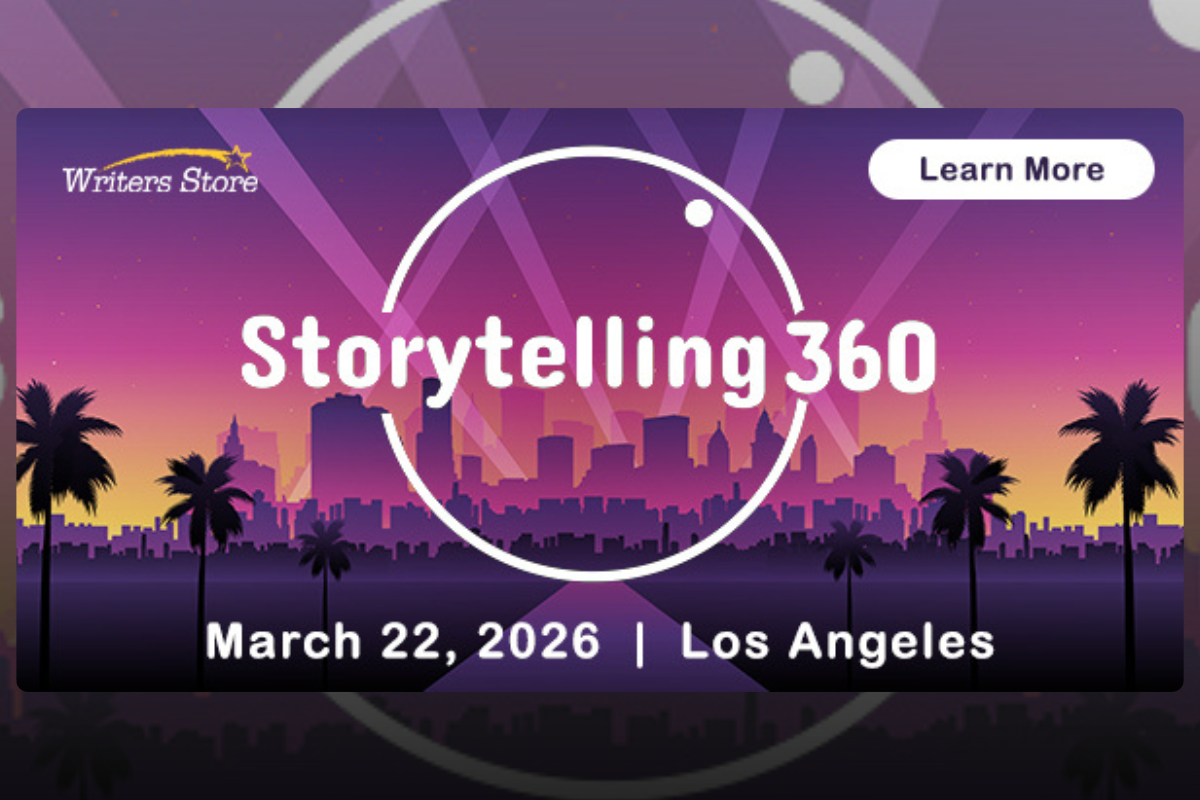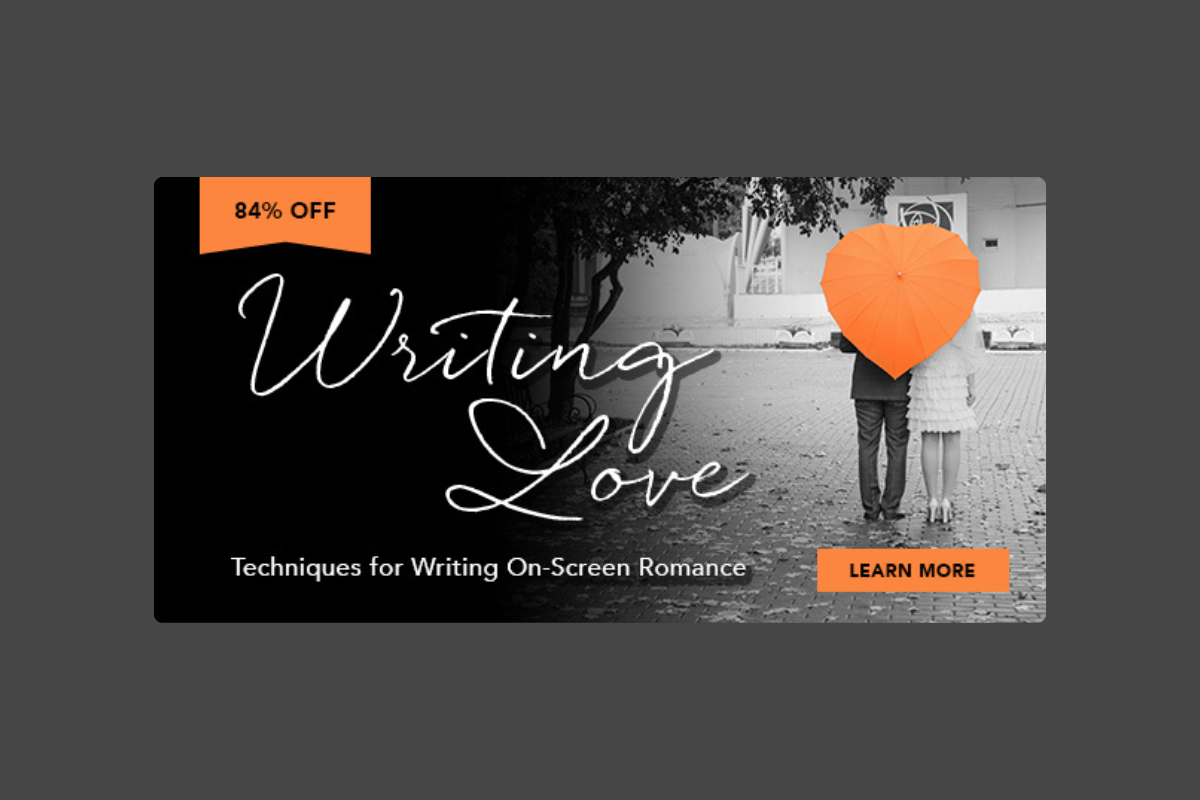BALLS OF STEEL™: Which Screenwriting Experts Should You Believe?
With so many screenwriting experts out there, whom should you believe? Jeanne Veillette Bowerman challenges you to not drink the Kool-Aid and gives tips on navigating conflicting advice.
Jeanne Veillette Bowerman is the Editor of Script Magazine, on Stephanie Palmer's list of “Top 10 Most Influential Screenwriting Bloggers,” and co-founder of Twitter's #Scriptchat. Her narrative adaptation of the Pulitzer Prize-winning book,Slavery by Another Name, was selected for the Tracking Board's Top 25 Launch Pad Competition. Follow Jeanne on Twitter @jeannevb
Disclaimer: I’m about to discuss something that’s a pet peeve of mine, so my emotional, Sicilian, black-belt self might peek out from behind my editor’s glasses. I apologize in advance. Well, maybe not.
Here goes…
I’m very active on social media and a member of many online screenwriting groups. I’m an information junkie, and above all, a lover of learning. Nothing is off limits – podcasts, articles, books, interviews, how-to tips. You name it, I’m absorbing it.
But with so many screenwriting experts out there, whom should you believe?
Simple – everyone and no one.
For those who don’t know, I went to Cornell School of Hotel Administration and ran a motel and restaurant for 15 years before I became a writer. Trust me when I say writing is like cooking. A top chef can instruct you on how to make their master dish, but what you create will never taste like theirs. Ever. And guess what? It shouldn’t. If it does taste exactly like theirs, then you failed.
Copying is not creating.
Like writers, chefs are artists. We toss in a bit of this, a bit of that, and our personal taste will define the overall dish. Spicy, mild, a dash of curry or cumin. There are no rules when creating a meal except the food must taste so good your guest can’t put his fork down. The most important rule in storytelling is to grab a reader by the throat so she has to keep turning the page.
There are more ways to make beef stew than you can count, but it doesn’t mean only one way is delicious. Just watch Top Chef and you’ll get that. I don't care how you cut the meat, or if you julienne or dice the carrots, much like I don't care if you outline or not. All that matters is the final product.
So, when any screenwriting “expert” wants to force you to prescribe to only one way of thinking, that gets my chef apron in a bunch and my Sicilian temper on high.
I would never tell another writer they were right or wrong when it comes to their process, or screenwriting books they read, or resources they use. It is their process. Their journey. Just like I wouldn’t walk into my grandmother’s kitchen and dare tell her that because I made a living as a chef, I know better than she how to cook her succulent veal cutlets. She would have dragged me out by my earlobe.
But if I were to take her recipe into my own kitchen, and play with it, later serving my rendition of her family-favorite dish, she would have not only loved it, she would also have been honored she inspired me in some way.
THAT is what an expert’s advice should do. Inspire your writing, not define it.
One more bit on the cooking analogy, and I’ll move on: Cookbooks are a tool all chefs start with. As they grow in confidence, they open them less, but an old favorite is pulled out from time to time. For me, it’s Julia Child. She inspired me by making classic dishes with only a handful of ingredients. Yet while I admire her greatly, I have never prepared one of her recipes exactly as she did. I cook how I write – with reckless abandon, freedom and passion.
"The only real stumbling block is the fear of failure. In cooking, you need to have a what-the-hell attitude." ~ Julia Child
Same holds true for books, screenwriting classes, or even script consultants. If all you get is one nugget of information that helps you improve in some way, it was worth the price, wasn't it? I have countless cookbooks where only one recipe was of value to me, but I never regretted buying any of them.
I struggle recommending screenwriting resources to people because no two writers will get the same perspective out of an article or book. What resonates with each one partly depends on their skill level or what project they’re working on. I can pick up an article I read six months ago and see it in a whole new light today. As I evolve, I see different information.
Which is why I adore discovering new ideas and viewpoints.
Differing opinions should be welcomed with open arms and an open mind. Healthy debate always leads to learning. More and more online, I see attacks of someone's character simply because those making the attack, have never heard of that someone or bothered to research who they are.
In my humble opinion, that kind of behavior is unacceptable, juvenile, and unprofessional.
I recently witnessed an act of character assassination that made my blood boil. What I found most fascinating was how scared people were to publicly disagree with this popular screenwriter who has a cult-like following. How do I know people were scared? Because they contacted me personally via email, phone calls, private and direct messages to let me know they disagreed. But I won’t call him out by name either, because his name isn't important. He merely represents every single person out there giving advice, including myself.
Anytime you get advice, free or otherwise, it’s your job to do your due diligence to weed through it all. Don’t blindly drink the Kool-Aid. Trust your own opinion and judgment on what is best for you and your words.
Which brings me to my next point…
Doesn’t the opinion of famous writers trump all?
Not necessarily. Yes, there’s great value in learning from those who have succeeded. Our Writers on Writing column is one of my favorites. I also love discovering how people broke into this crazy business, but some of those people admit to “making it” more from luck than the quality of their writing. Just because they did get discovered doesn’t mean they know your story, or storytelling in general, better than you do. After all, before Stephen King was famous, he was an extraordinary writer struggling to get published. But he was still Stephen Fucking King and could write circles around “famous” writers who arrived before and after him.
Don’t let someone shove you into a box and make you feel like your talent isn’t and never will be good enough, just because they got to the finish line before you ever learned to hold a pen. Remember... they don't know you. They have no idea what you are capable of.
Now it’s time for my biggest pet peeve…
Let me make myself clear, I have zero problem with people disagreeing with each other. But I do have zero tolerance for rudeness. What has happened to people? Has social media inflated everyone's egos to a point where we've turned "social" into "sociopath?"
What fuels character-attacking comments is the lack of tolerance for opposing viewpoints. When did story structure or formatting become as explosive as politics?
Seriously. People need to take it down twenty notches.
Our Founding Fathers grounded our country in the right to free speech, freedom of ideas, and the pursuit of happiness. But I don't believe their intention was to encourage slanderous attacks on those who navigate their learning of screenwriting differently. I get enough combative political views on Facebook. I don’t need them in the pursuit of my passion.
Here’s a concept, how about while our society is arguing about the racial divide, the lack of opportunities for women in film, marriage equality and equal pay, we add “opinion equality” to that list? Isn’t the point of a civilized society to be able to have an open dialogue without disrespecting each other?
I not only post columns with opposing views on this site, but I also applaud when my own contributors disagree on a subject. We all keep an open mind, debate our insights respectfully and learn from each other’s experiences. That’s called progress. Having a closed mind doesn’t progress anything… except ignorance.
We hold up writers like Charlie Kaufman and Quentin Tarantino as examples of uniqueness we aspire to, and we should. But QT himself admits none of his stuff got past the readers. He got lucky. Lawrence Bender read Reservoir Dogs and believed in it enough to bring to Harvey Keitel, and the rest is history. I heard an interview with Kaufman where he said he couldn't have gotten his now famous out-of-the-box projects off the ground until after he had already been welcomed behind the curtain for writing more in-the-box projects.
Maybe the problem is in our “everyone gets a trophy” culture and now no one wants to do the hard work. They want a formula for their screenplays. They search out and hang on the words of the screenwriting cult leaders, hoping they anoint them into their gang. But when the leaders of those gangs brag about getting blocked on Twitter, or frequently block others who disagree, I have to wonder where their true “spirit of generosity” lies.
No one knows anything other than what worked for them. In my opinion, that’s all people should be sharing, but not preaching it in a way that discourages writers from trying a different approach. That’s irresponsible. As a parent, I encourage my kids to challenge their teachers, speak up when they disagree and start a dialogue. Teachers and mentors should welcome that.
It's important to remember before those experts were who they are now, they were you and I. I have worked with accomplished and even Oscar-winning writers. One of my writing partners won a Pulitzer. Every one of them has a different writing process, “break in” story, and financial investment into their craft. Several went to film school, one has a journalism degree, and the other chose the no-money school of learning writing by living it. Does that make any one of their successes or opinions more valid than the other? Nope. They are all amazing writers.
When a great script is sitting in front of an executive, they don't give a shit how much or how little money you spent learning how to write it. They only care that they are going to make money on your words.
Look, there are tons of gracious and warm-hearted professional writers online truly wanting to help up-and-coming screenwriters understand the industry. I applaud and have great respect for them. Many of them have generously helped me improve my writing and have also been guests on #scriptchat. Those writers are selfless. They welcome discussion, engage with their followers, and go the extra mile to share their perspectives for no gain to themselves whatsoever. Many experts like that are out there, and you should take the time to find them and listen.
My concern is the ones who are intolerant of others' viewpoints thus promoting that same intolerance among up-and-coming writers. One thing that is consistent is that the screenwriting industry is vastly different now than when some of those writers who offer judgmental, "free" online advice broke in, and certainly a more challenging landscape since the economic collapse in 2008. The business is ever-changing and evolving and for any writer to give advice on how you should pursue your career only their way makes very little sense to me. You can’t compare spec scripts to scripts written on assignment, and I’d venture to guess, all those experts' jobs are now from paid writing gigs. Good for them. That's not sarcastic either. I am truly happy they can earn a living writing and don't have to submit specs to readers, hoping they get past the gatekeepers.
Bottom-line: They aren’t walking in our shoes in 2015. Go ahead and listen to their stories but be mindful of what advice still applies and what has expired. The "rules" don't apply to them anymore, formatting or otherwise. They are at a different level of access than the rest of us. They have already proven themselves. Read any QT script, and you'll see what I mean.
If you still think you should bow to any professional writer, let me ask you this, and this is not a personal attack on E.L. James, but would you take her advice on writing prose? I wouldn’t, but I would definitely listen if she wanted to engage me in a discussion on marketing a novel and negotiating a studio contract. Hell, I might even pay her to be my marketing consultant!
Let's talk nature vs. nurture and whether you should pay for anything screenwriting related.
No one is born as a master at anything. Writers don’t learn purely through osmosis, nor do engineers, sculptors, chefs, painters or film directors. So, is it reasonable to suggest a writer shouldn't spend any money at all to improve?
Certain experts state the odds of breaking in are minuscule and most of us will never break down the doors, let alone break in. Screenwriting is FREE, just like breathing in oxygen, so we shouldn’t buy books or hire consultants to give us any help or advice. Basically, it’s like saying to someone who stops and asks for directions, “Sorry, but you don’t know whether I really live here or not, so why should you trust me for directions?” Don’t buy a GPS, because those cost money! Don’t invest in a map because who the hell created it? Forget buying gas… it’s too expensive! But hey, have fun trying to find your destination!
Herein lies the rub: I honestly believe their advice comes from a good place. I don't disagree with how difficult it is to break in, I'm living it. But if no one is born a master writer and you aren't supposed to spend any money on screenwriting resources, and you want and need feedback on your work, to assume free feedback will help you learn is naïve. Getting bad feedback can be more damaging than no feedback at all.
Yes, it's possible to get good free feedback. Join online screenwriting groups and tweet using the hashtag #scriptchat to meet writers. But the problem is, you'll be getting feedback from people who may not know anything more than you know.
Professional writers give each other feedback and can trust the advice they're getting has years of experience behind it. But even that is not really "free." Their time is valuable. While I am fortunate to now have a network of professionals to exchange scripts with, I didn't when I started out, and I chose to pay respected consultants. I looked at it the same as I do when I hire a tutor for my kids.
Can you learn about writing without spending money? Absolutely! But that doesn’t mean every writer can learn without help. Don’t judge those who want to educate themselves in a more traditional way. We would all love to have a small network of writers who know the craft well enough to help elevate our work. But the world isn't perfect. So to that end? Some writers are always going to benefit from hiring a consultant or reading a book.
Look at writers like Mario Puzo and Francis Ford Coppola who wrote The Godfather, a favorite film of many, especially this Sicilian girl. They indeed paid to learn. Puzo attended New York’s New School for Social Research and Columbia University and Coppola went to UCLA… where he met George Lucas.
I bet their instructors never made them buy a book. Oh wait, The Godfather was a book. Which also brings me to the point that comparing the adaptation of The Godfather to any spec script is irresponsible. Analysis is fine, but make sure you're analyzing comparable bodies of work.
I'm not attempting to convince you whether you should spend money learning how to write or not. People feel strongly one way or the other, and that's cool. Just don't disrespect each other when you discuss it. Since we're deep in the "pay or not" topic, one thing I do feel strongly about is NOT EVER paying someone to submit your script to execs! Yes, that's my opinion, and you can disregard it, but I've been around long enough to know that is a flat-out scam. Period. For the $500 one particular person charges, you could fly to L.A. and network yourself.
There are indeed charlatans in this business, as there are in any business. Do your research.
I simply want you to do what is best for you and not feel judged for doing it. Use your energy, time and even money to please your vision. Most people giving advice have an agenda anyway, from selling books, services, apps, or even blog hits. Trust your Spidey senses.
Did I hear someone ask what my agenda is? Oh, I have one. My agenda is simply to encourage everyone in this world to go after their dreams, to be kind, to not suck as a human being, to write well, and to welcome new, fresh ideas into their journey. I won’t listen to or let negative, mean-spirited people into my life. It breaks my heart when those I deeply respect are viciously and unjustly attacked. I want to build our community of learning and support, not sit back and watch someone get beat up on the playground without coming to their defense.
Have each other’s backs. Period. I mean that.
It's hard enough being an artist. Let's not make it harder by allowing unjust attacks to take place without defending each other.
Every single person reading this has a different talent and path. Help each other, don't ridicule each other. There are as many ways to succeed as there are people who have succeeded. If you find a new way to get attention to your work, share it. Be a positive force in our community.
You know who I imagine when this industry beats me down? I channel Jeanne d’Arc who was inspired to lead France to victory after seeing a vision of the Archangel Michael. Can you fathom what it took for her to convince the leader of France to let a teenage girl lead a freakin’ army… because she saw an angel? After leading her soldiers to victory, she was arrested, tried and burned alive at the stake at the age of 19. Years later, her guilty verdict was reversed because they realized she was right, and they, the experts, were wrong... but she was already dead. And you thought breaking into Hollywood was hard. Pretty sure that chick didn’t care what any guru said. She went after what she believed in with all of her heart, did it like none other, and we’re still talking about her greatness and courage hundreds of years later.
Luckily for us, writing is not as hard as leading an army as a teenager. There’s no magic trick or list of experts that can guarantee their advice will get your script sold. But there are some incredible people out there who do want to help. Learn as much as you can anyway you can. I don’t care how you do it, but do it. Read scripts, read books, watch movies, read blogs, take classes, use script consultants, tweet, enter contests, find screenwriting groups, or do none of that and just write. But if you do choose to seek advice, remember most advice is just opinion, including anything I've offered in my columns. Filter out what doesn’t speak to you, keep focused on what does and then WRITE! No one can help you with that part. It’s up to you to get the words on the page.
The point is to absorb enough information to form YOUR OWN OPINION… one that works with YOUR WRITING VOICE and the story YOU want to tell.
So, are there any screenwriting experts you can believe in?
I believe in the ones who are mindful of a writer’s need to be original and whose advice is motivated by wanting you to explore a different perspective more than wanting themselves to be right. In fact, on many occasions my own mentors have openly shared that they learned as much from me as I learned from them. Those are the kind of people you want to listen to.
Maybe the solution to knowing who to trust is simply recognizing that the majority of people offering advice truly have good intentions at heart. Do your due diligence. As an artist, you need the tools to build a canvas properly and the courage to paint outside the lines. I don't want you to write like Tarantino or Kaufman. I want you to write like YOU.
I'm that girl who colored outside the lines. I'm the girl whose mother purposely bought a sprinkler that spun in a circle, horrifying our neighbors as it doused the sidewalk with water while everyone else’s on the street was robotically synchronized, swishing from left-to-right, keeping the pavement neat and tidy. But my mother didn't go outside and gloat, trying to shame those who conformed. She watched from behind her curtain, smiling, knowing she did what made her feel right. Best of all, who the hell cares. Everyone's grass was beautifully green in the end. Maybe it’s because I was raised by a bad-ass, rebel mother that I want you to listen to your own gut, too.
When people blindly follow others, that's when dangerous things have happened in history. Anyone who made a difference in this world thought independently.
Listen objectively to people's advice and remember that advice is usually based solely on opinion. Everyone's entitled to one. Make up your own mind on whose opinion resonates with you best, but don't second guess yourself if you don't always agree. Trust your instincts. If someone hands you a glass of Kool-Aid, be very careful. We all know what happened when followers drank the cup Jim Jones handed them.
- More articles by Jeanne Veillette Bowerman
- Notes from the Margins: Finding Your Writing Process - A Procrastinator's Journey
- Meet the Reader: 12 Signs of a Promising Spec Script
- Balls of Steel: Script Consultants - Are They Worth It?
Learn the "nuts and bolts" of screenwriting with Dave Trottier's webinar
7 Common Blunders Screenwriters Make (and How to Avoid Them)
Jeanne Veillette Bowerman is a Senior Executive at Pipeline Media Group and Book Pipeline, Editor-in-Chief of Pipeline Artists, Director of Symposium—a year-round conference in the arts, co-host "Reckless Creatives" podcast, partner at Fringe Press, former Editor-in-Chief of Script magazine and a former Senior Editor at Writer's Digest. Recognized as one of the "Top 10 Most Influential Screenwriting Bloggers," her "Balls of Steel" column was selected as recommended reading by Universal Writers Program. A compilation of her articles is now available at The Writers Store—Balls of Steel: The Screenwriter's Mindset. She is also Co-Founder and moderator of X's weekly screenwriters’ chat, #Scriptchat, and wrote the narrative adaptation of the Pulitzer Prize-winning book, Slavery by Another Name, with its author, Douglas A. Blackmon, former senior national correspondent of The Wall Street Journal. More information can be found on her website. X: @jeannevb | IG/Threads: @jeannevb_ | BlueSky: @jeannevb.bsky.social







